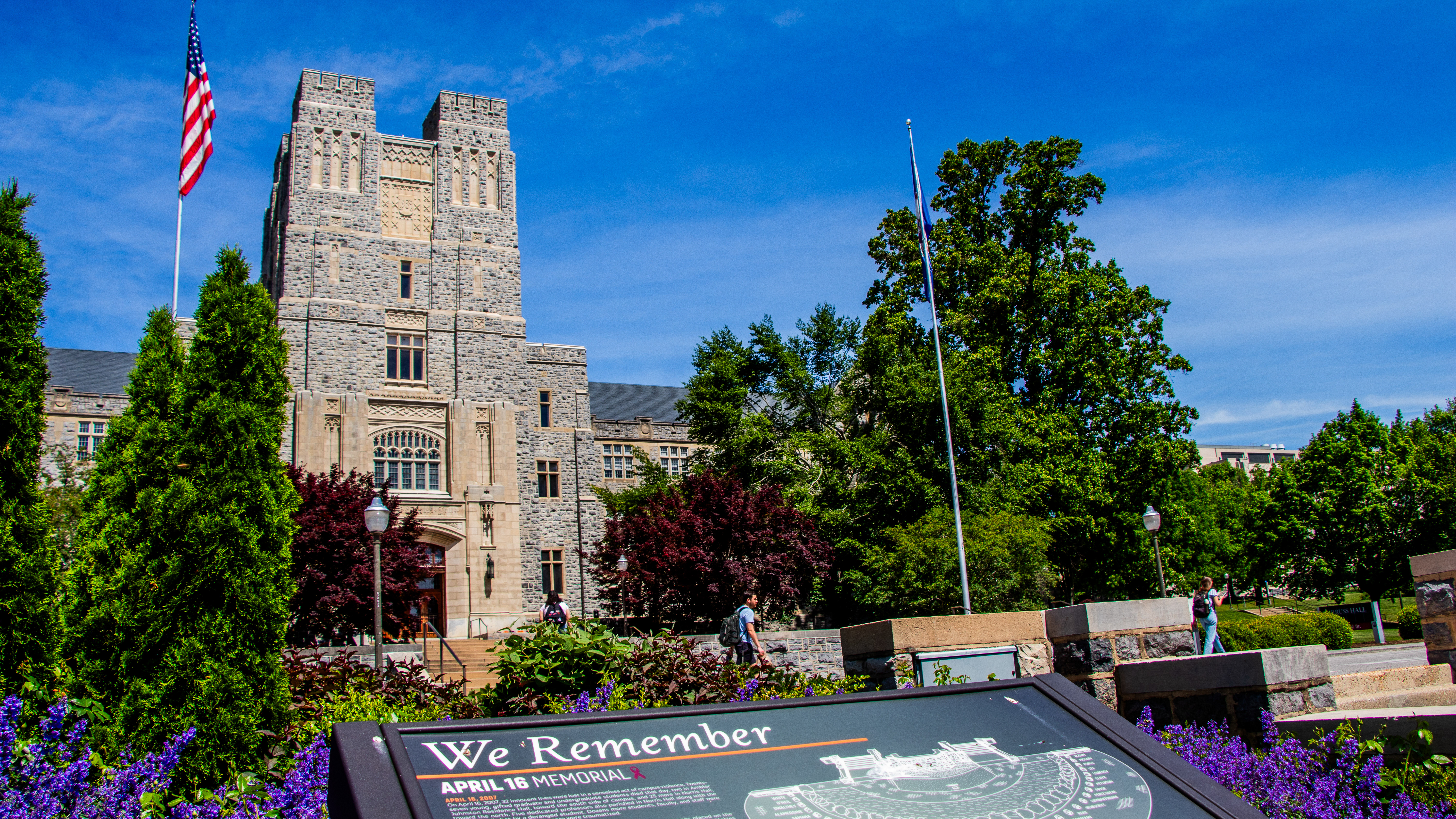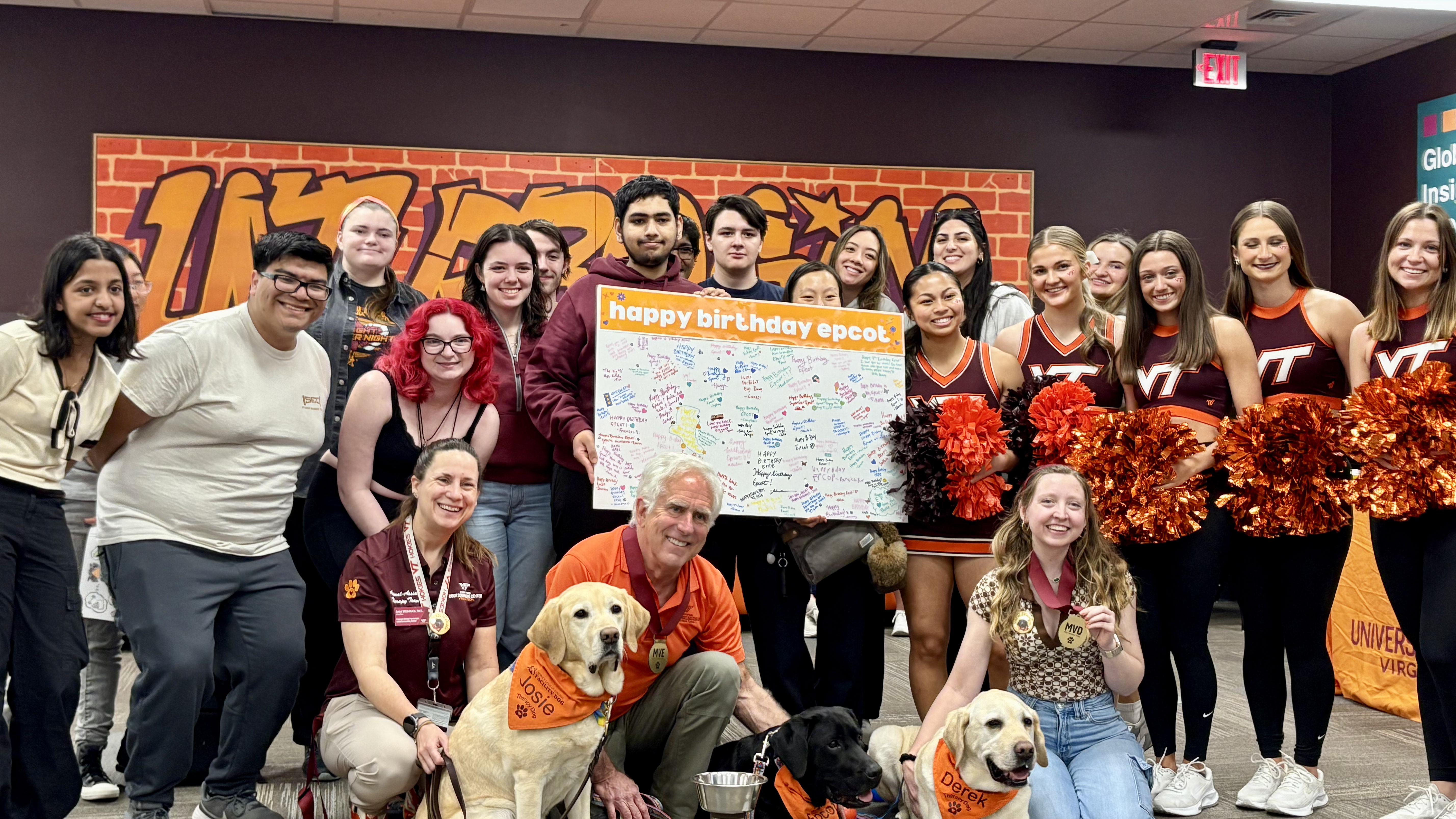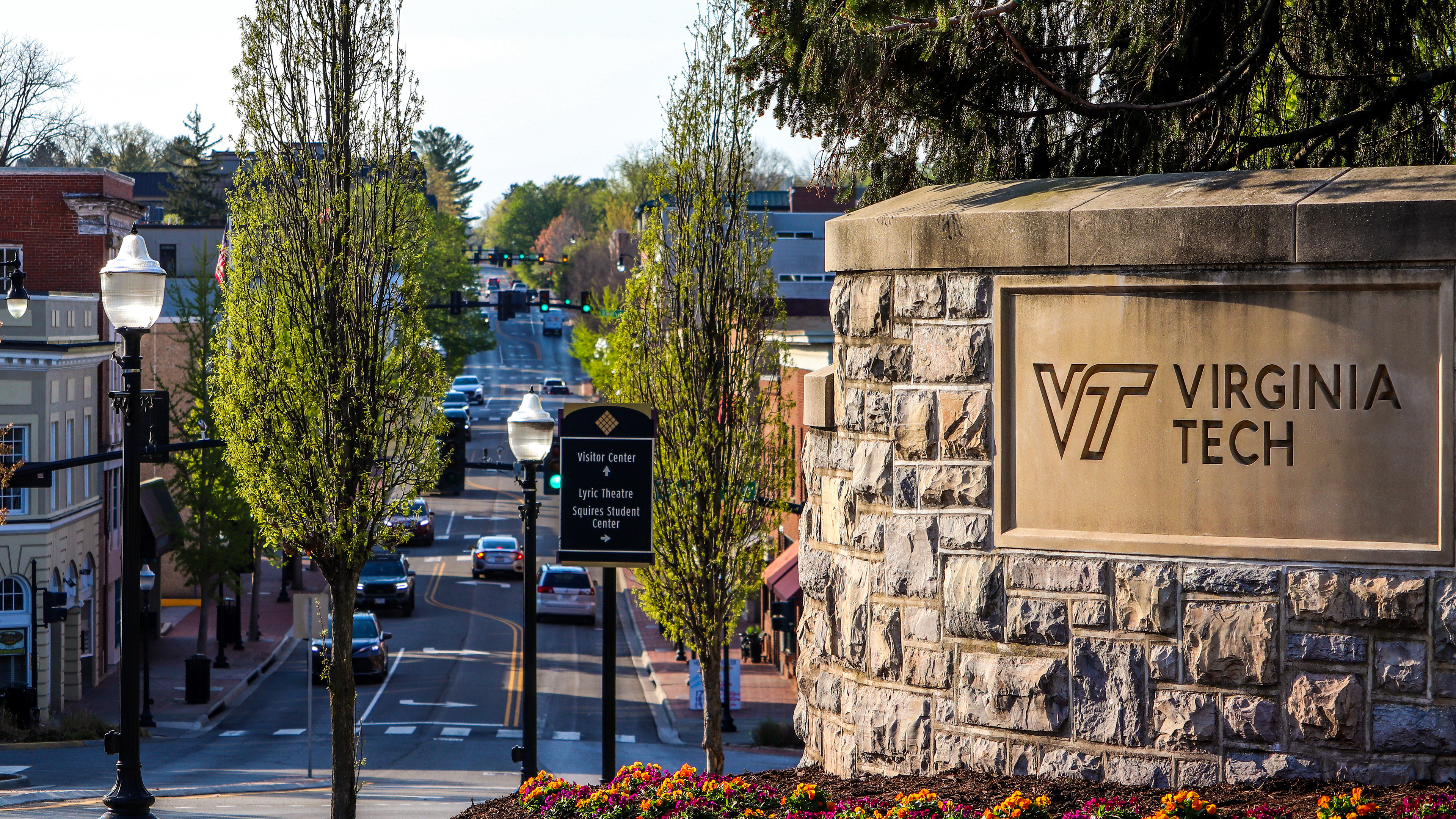Flashcards to cutting-edge innovations: Virginia Tech spearheads the future of learning
Virginia Tech community members explore ways to integrate AI into higher education while alleviating ethical challenges.
Michaela Scott
25 Feb 2025
Blacksburg, Virginia, Feb. 21, 2025 — AI-Powered Minds: Three students in public speaking class use ChatGPT to brainstorm ideas for their upcoming research project related to social issues.
As artificial intelligence (AI) has taken the world by storm, universities are exploring ways to integrate it into their classrooms while upholding academic integrity. At Virginia Tech, professors, researchers and students are working to find the balance between innovation and ethics.
“The harms exist, but the opportunities with tools like ChatGPT are endless,” said Katie Thomas, a public speaking instructor in the School of Communication.
Thomas explained that after carefully considering the technology, she began integrating AI literacy into her lessons, reminding her students of AI ethics. She enforces strict guidelines, openly discusses the tool’s use, and always refers to the Virginia Tech Undergraduate Honor Code to mitigate ethical dilemmas.
"We talk about using it as a tool, not as doing our work because we use Grammarly as a tool, which is AI, but we don’t have Grammarly write our papers for us,” Thomas said. “We use it to help enhance our work, like we would with a calculator.”
In January, a research study at Virginia Tech was published in Springer’s Innovative Higher Education, examining faculty and student perceptions of generative AI in university courses.
The research illustrated that students and faculty agree generative AI tools can contribute to academic dishonesty and cheating. Additionally, the study revealed that 80% of the 1058 individuals surveyed believe formal policies should be established to guide students’ use of generative AI.
Assistant professor in the Department of Geography and co-lead on the study, Junghwan Kim, explained that these insights are essential to establishing informed guidelines at the university level to accurately use AI in education. Otherwise, policy could be created without a stable foundation. With the rise of ChatGPT, Google’s Gemini and Microsoft’s Copilot, ethical implementation and clear expectations of use are more important than ever for universities.
“I developed a new course called Generative AI Applications in Social Science where students think about how we can utilize AI tools effectively, but also discuss ethical concerns, limitations and responsible use,” Kim said. “The course bridges the gap between students who believe AI is perfect and others who think AI has nothing to do with career development.”
Kim emphasized that the more we explore AI’s capabilities, the more we can identify limitations to mitigate and develop more advanced models in the future.
As universities work with the challenges of AI, educators are establishing ethical safeguards and students are learning to harness the tool as an assistant. Through continuous research and integration in the classroom, Virginia Tech is shaping a future where AI is used responsibly, transparently and ethically in higher education.
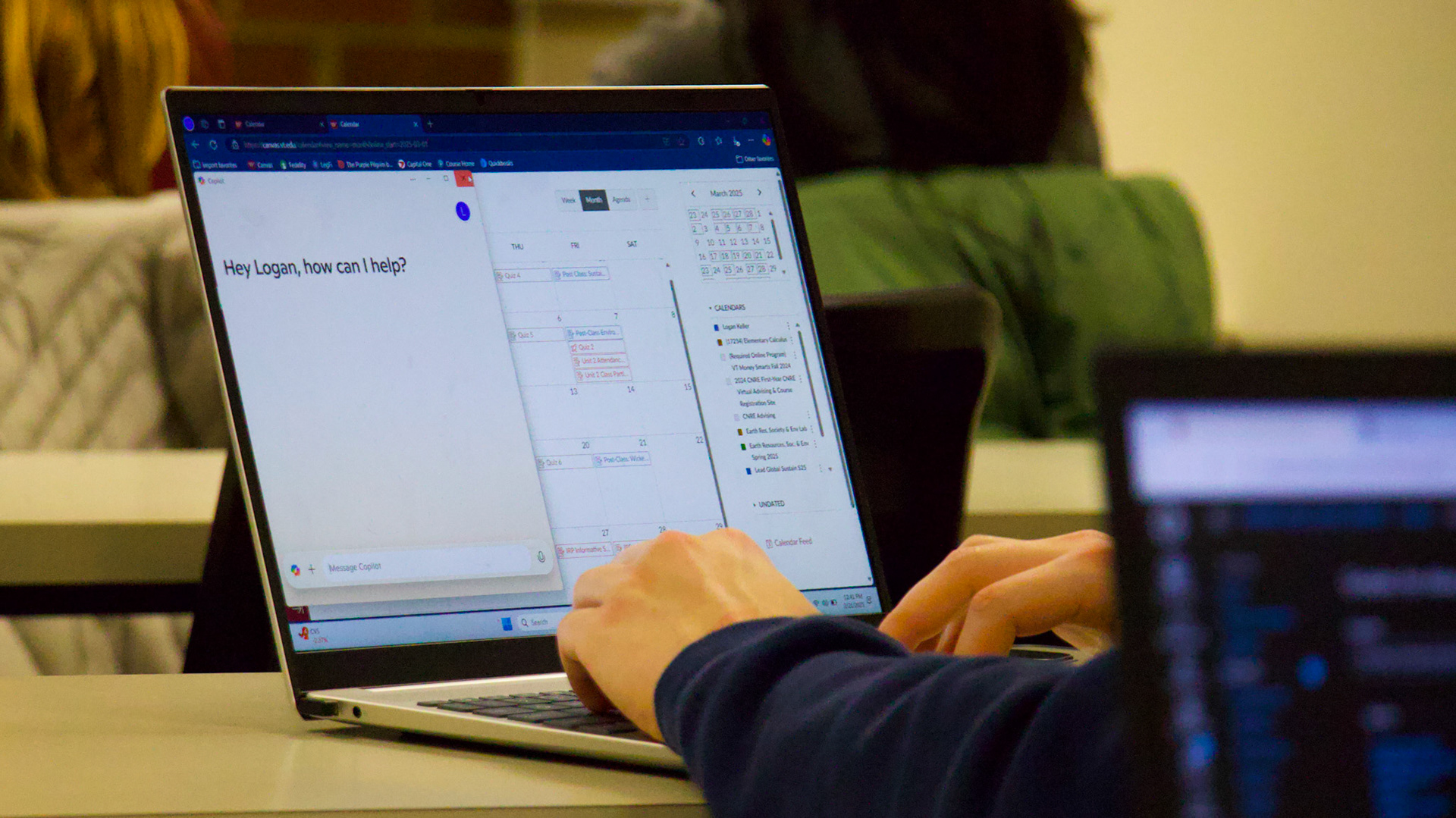
Blacksburg, Virginia, Feb. 21, 2025 --- Hey, Logan: A student in public speaking class opens up ChatGPT to ask the chatbot a question before he asks the instructor.
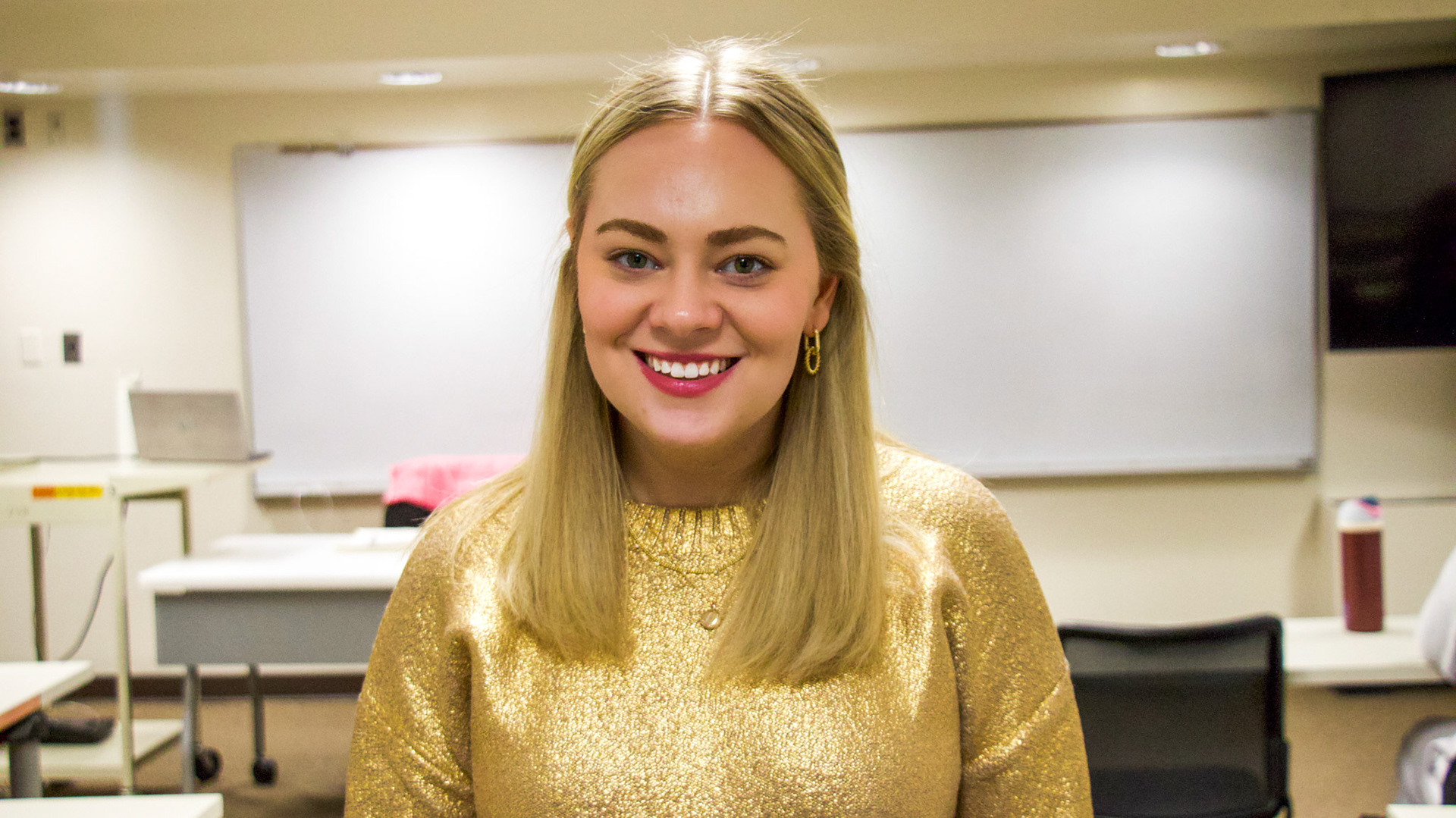
Blacksburg, Virginia, Feb. 21, 2025 — AI-Powered Leader: Instructor Katie Thomas poses for a headshot during public speaking class in Major Williams Hall.
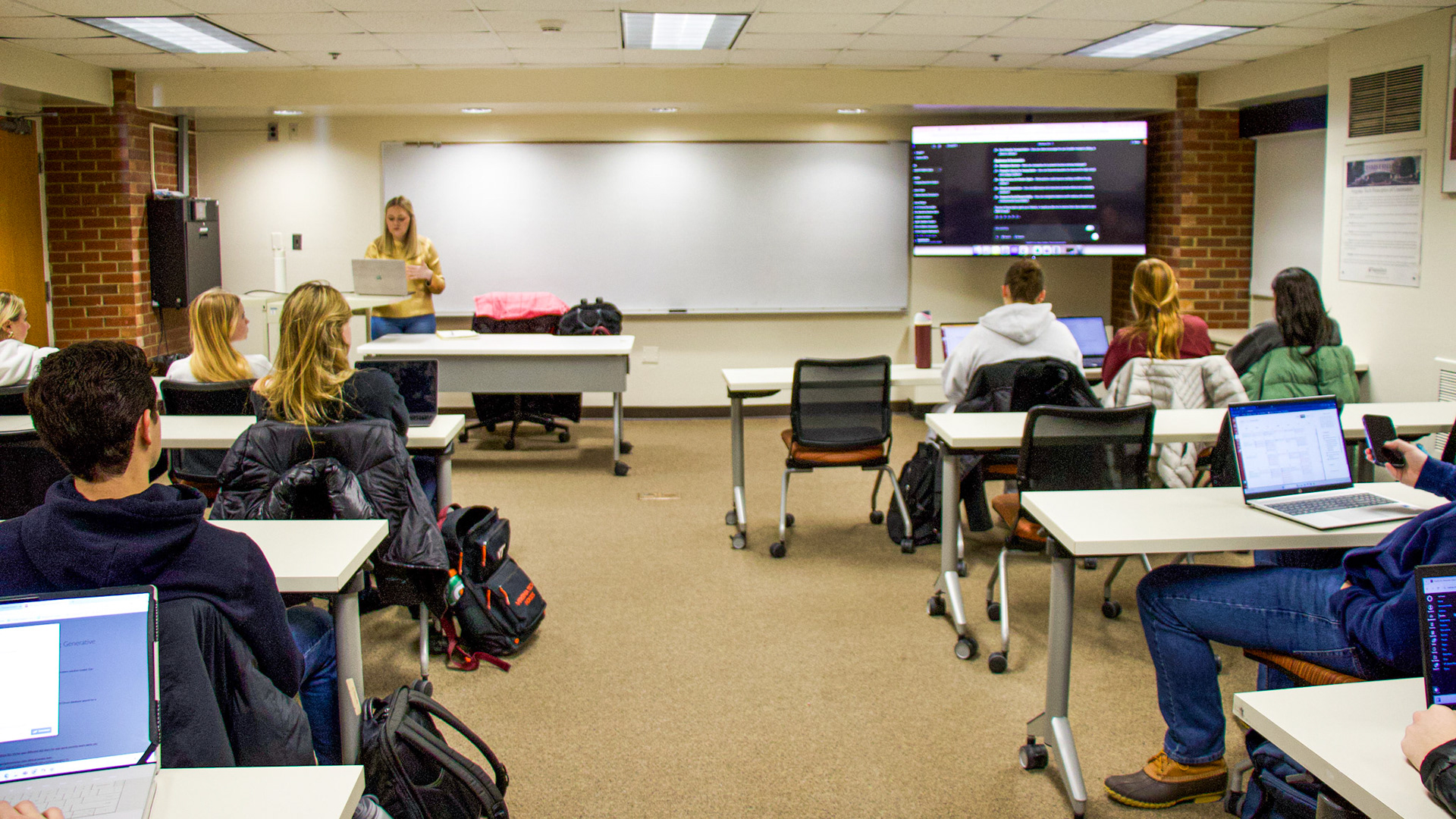
Blacksburg, Virginia, Feb. 21, 2025 --- AI-Driven Classrooms: Katie Thomas' public speaking class listens to the lesson about using generative AI to research.
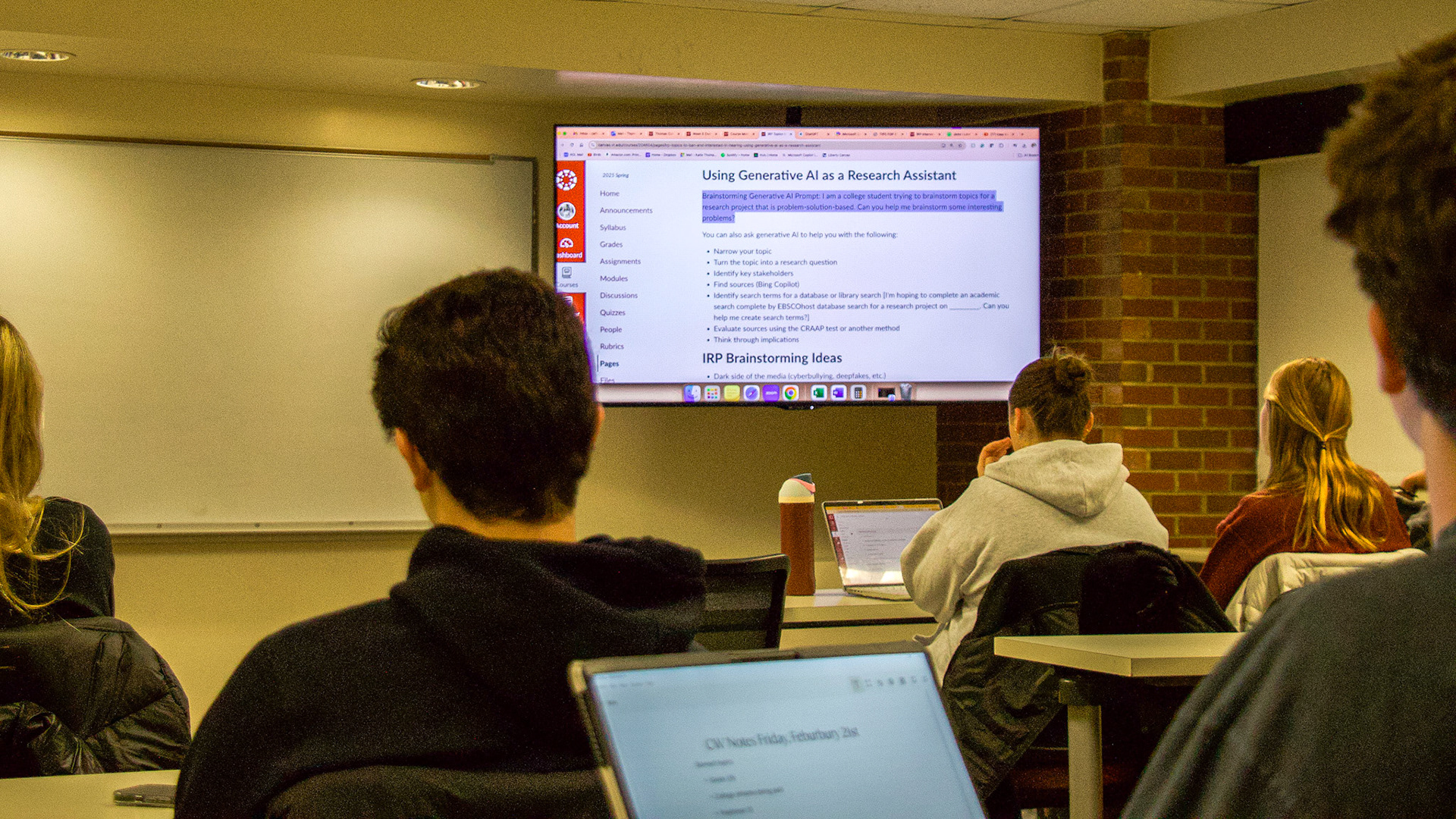
Blacksburg, Virginia, Feb. 21, 2025 ---- Breaking Down AI: Students type their daily notes as they prepare for their upcoming research presentation.
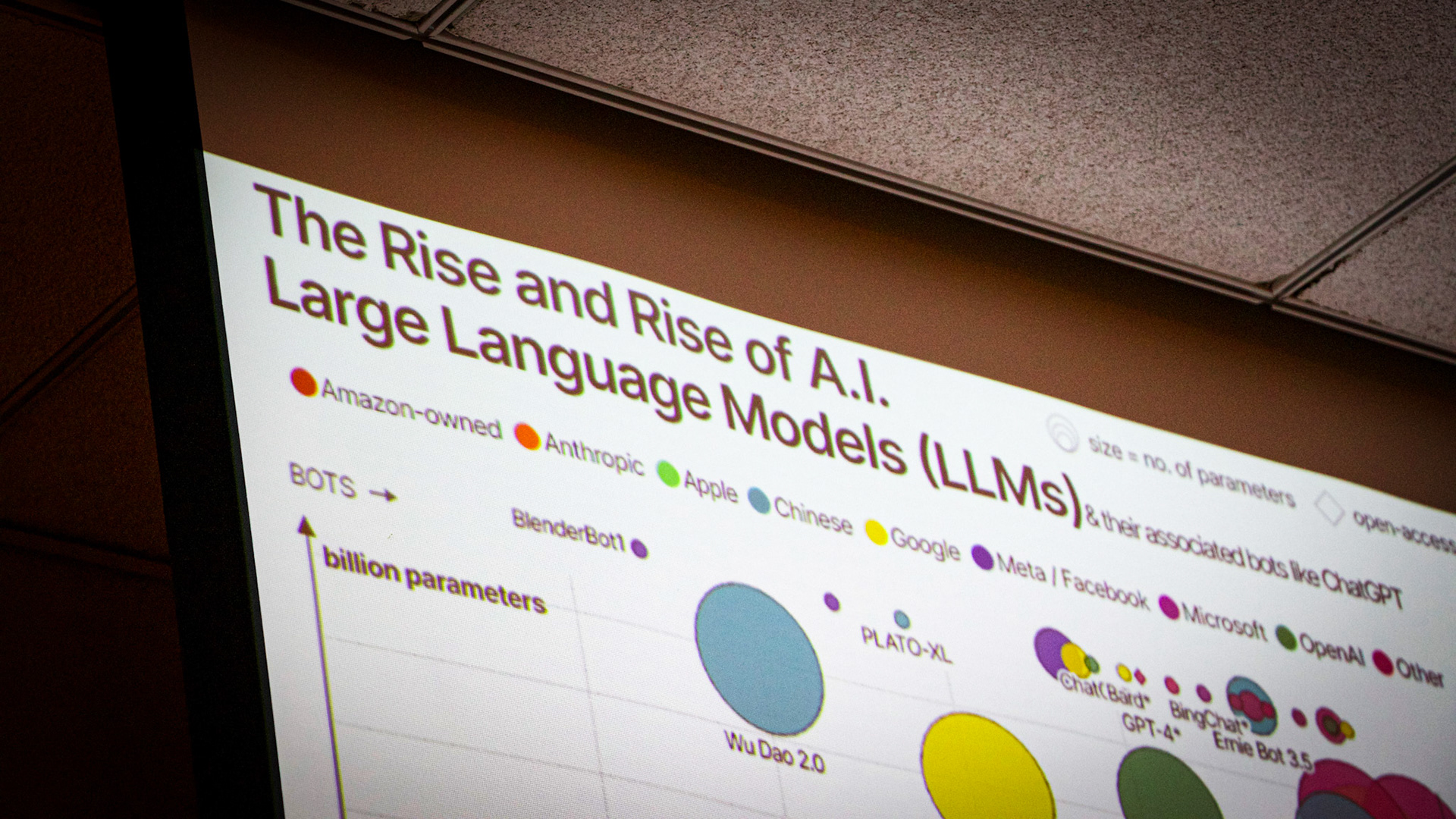
Blacksburg, Virginia, Feb. 19, 2025 --- Rise of AI: A close-up look of Professor Junghwan Kim's lesson, depicting a variety of large language models similar to ChatGPT.
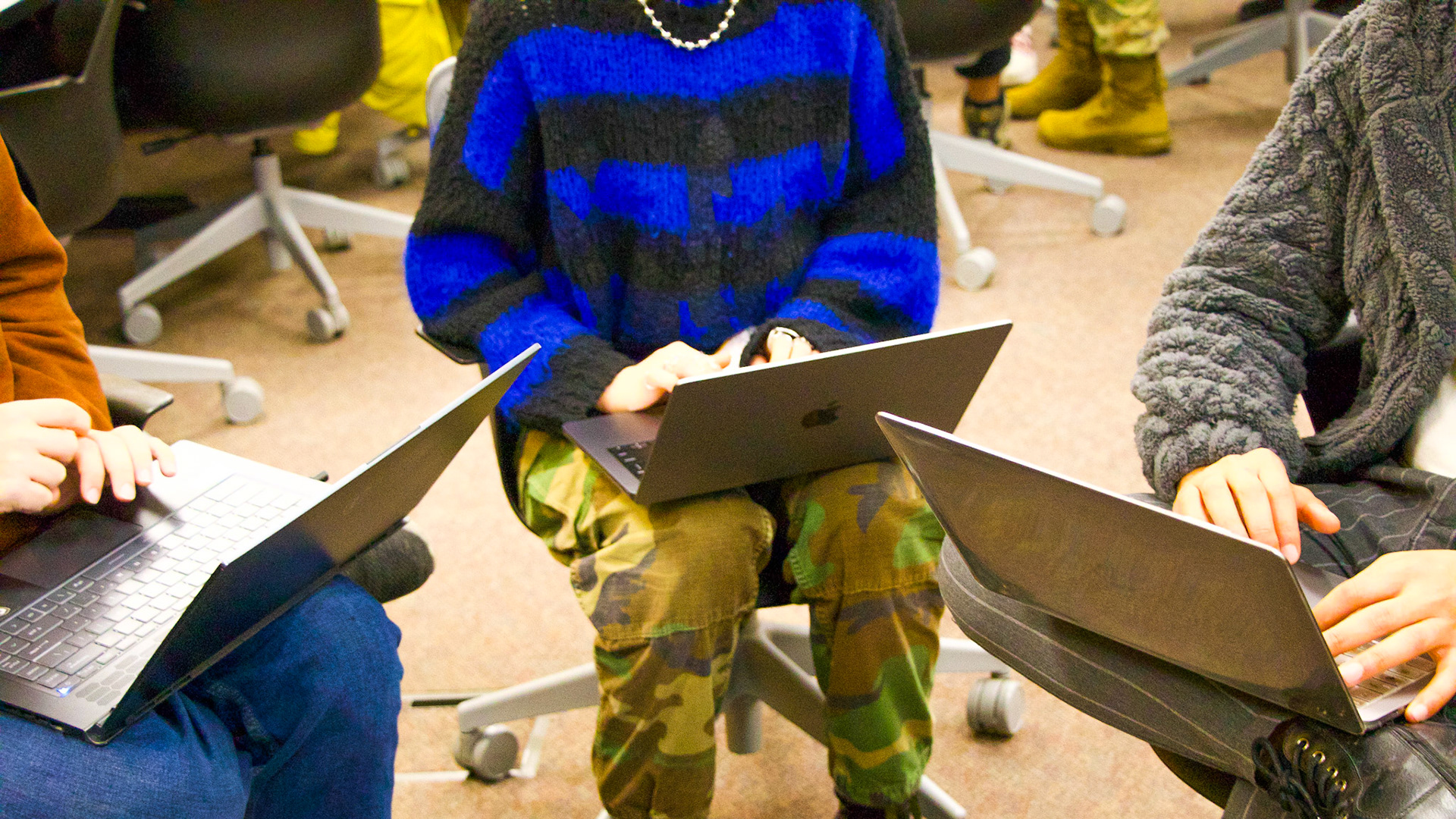
Blacksburg, Virginia, Feb. 19, 2025 --- AI in Action: Three students quickly complete their in-class assignment that explores generative AI concepts.
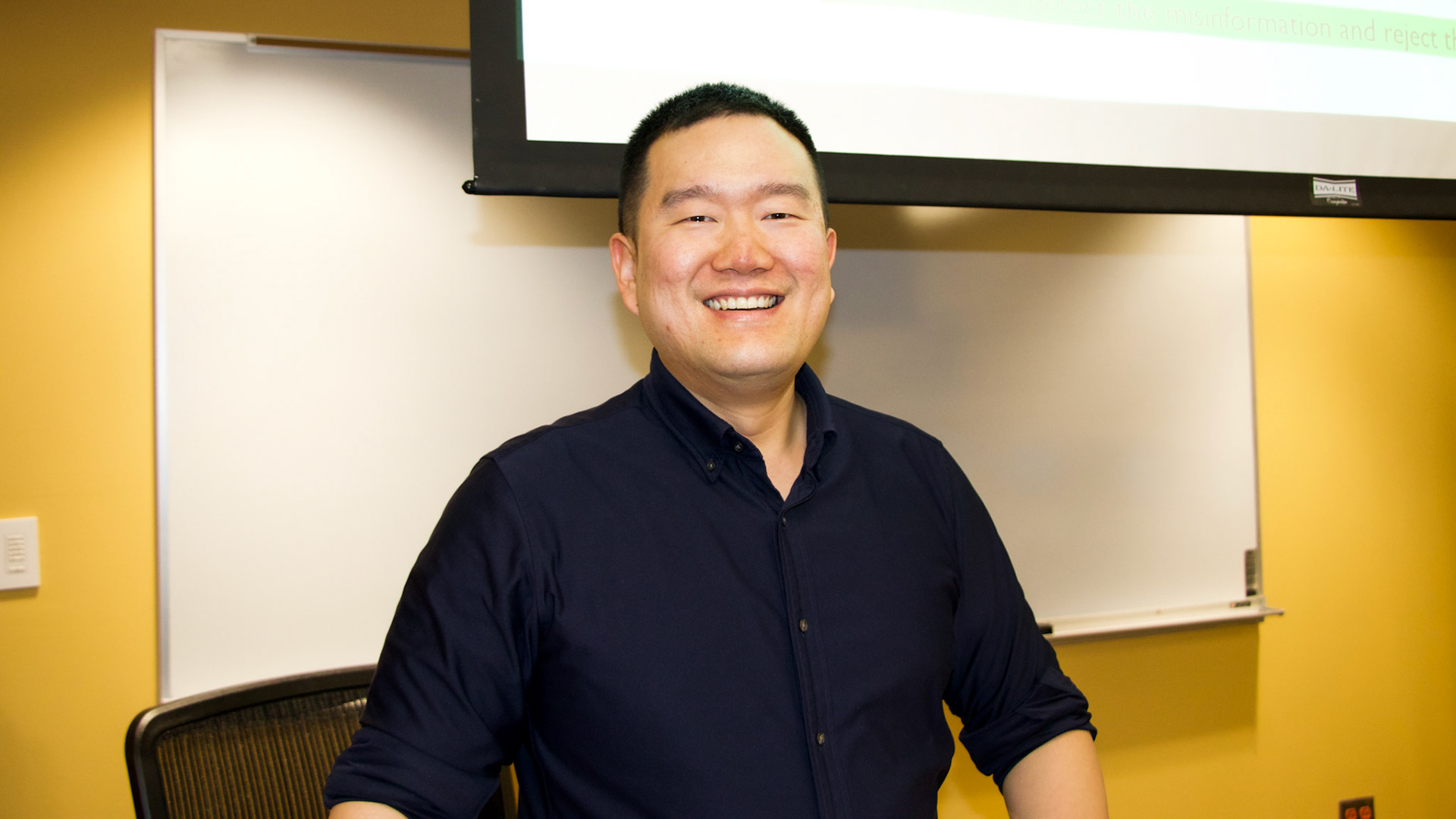
Blacksburg, Virginia, Feb. 19, 2025 --- Professor, Researcher, AI Innovator: Assistant professor in the Department of Geography and co-lead on a major AI study Junghwan Kim poses for a headshot during his Generative AI Applications in Social Science course.
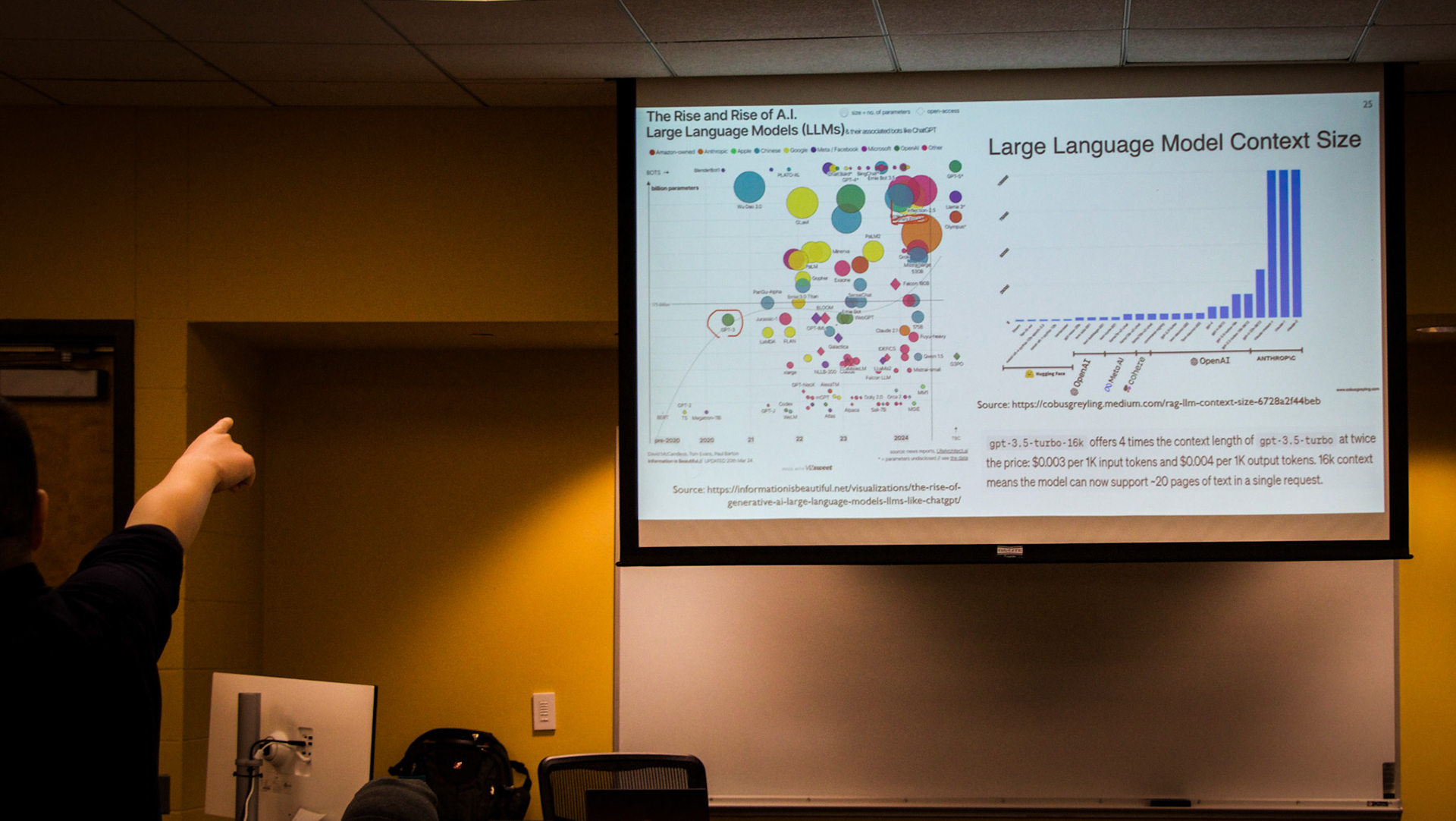
Blacksburg, Virginia, Feb. 19, 2025 --- AI's Expanding Landscape: Kim leads a discussion on the rise of AI and its expanding influence in the tech landscape.
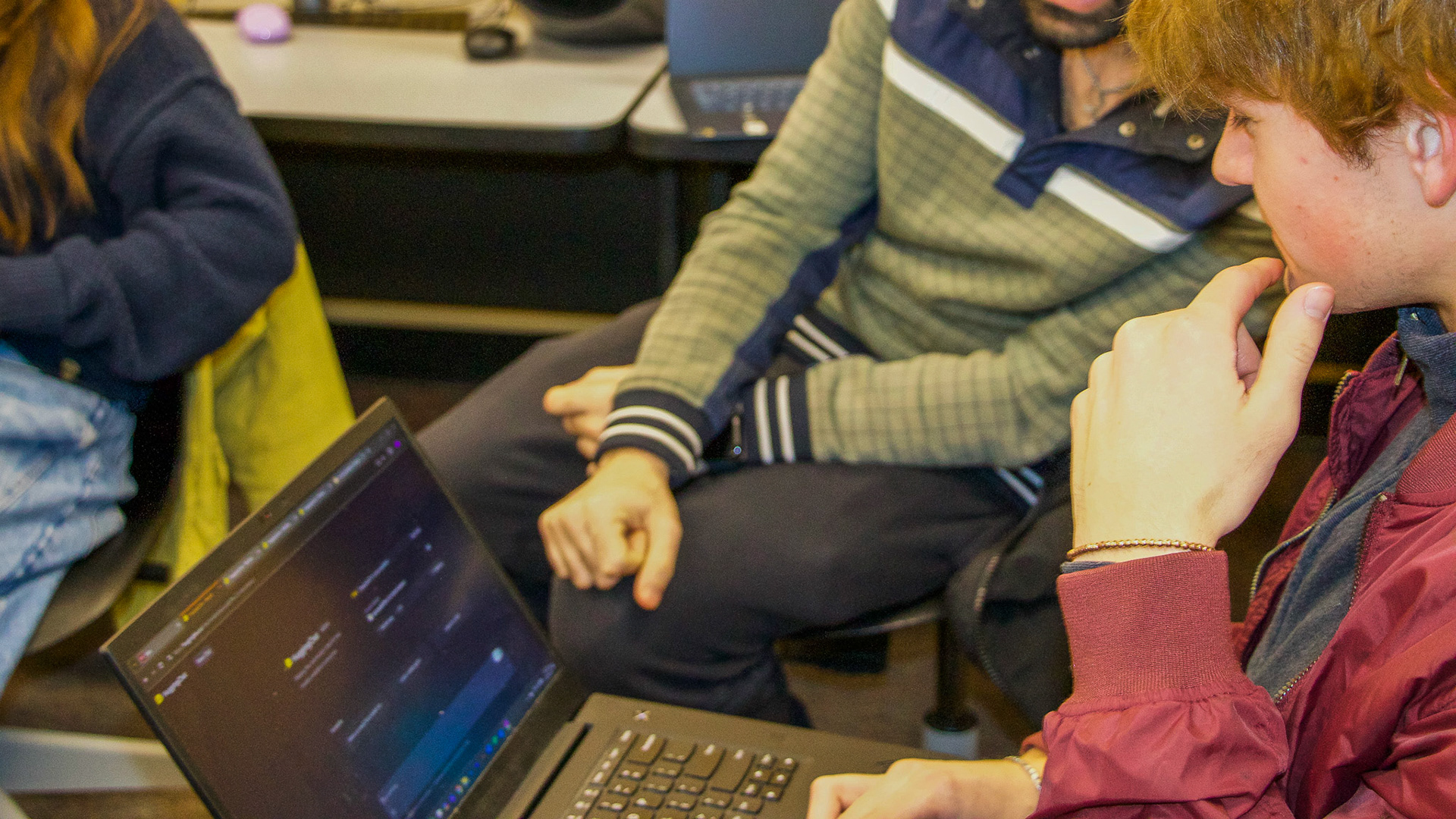
Blacksburg, Virginia, Feb. 19, 2025 --- Collaborative AI Learning: A student collaborates with a TA during an in-class activity exploring generative AI concepts and the latest chatbot technologies in Kim's course.
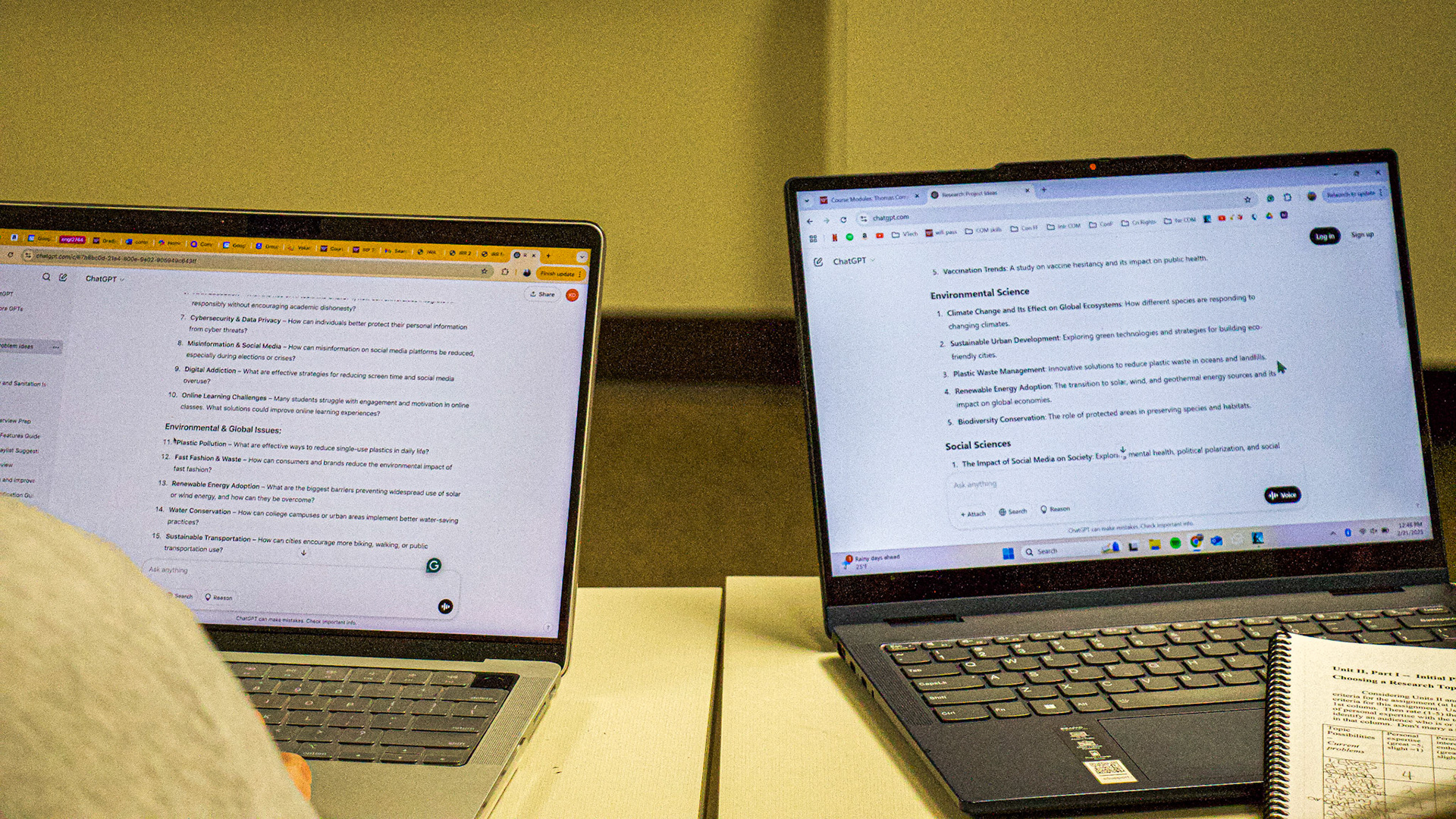
Blacksburg, Virginia, Feb. 21, 2025 --- AI-Generated Research: Two students in Thomas' public speaking course use ChatGPT to brainstorm ideas for their upcoming research project, integrating AI into their academic work.
Multimedia Reporting (JMC 3154) at Virginia Tech prepares students to meet the demands of modern journalism by developing professional reporting strategies and digital storytelling skills. The course offers hands-on experience in news writing, audio and video production, and data visualization, using industry-standard tools to create compelling multimedia content. Students build a digital portfolio in Adobe Portfolio, showcasing traditional news articles, podcast-style audio stories, and interactive visuals. Tools like Adobe Audition are used to edit audio reports and interviews, while Adobe Illustrator helps transform raw data into clear, engaging infographics. Throughout the course, students are challenged to think critically about how different formats influence public understanding, with a strong emphasis on ethical reporting and audience engagement. Each project builds toward a cohesive, professional portfolio that reflects a deep understanding of multimedia journalism and digital communication.

